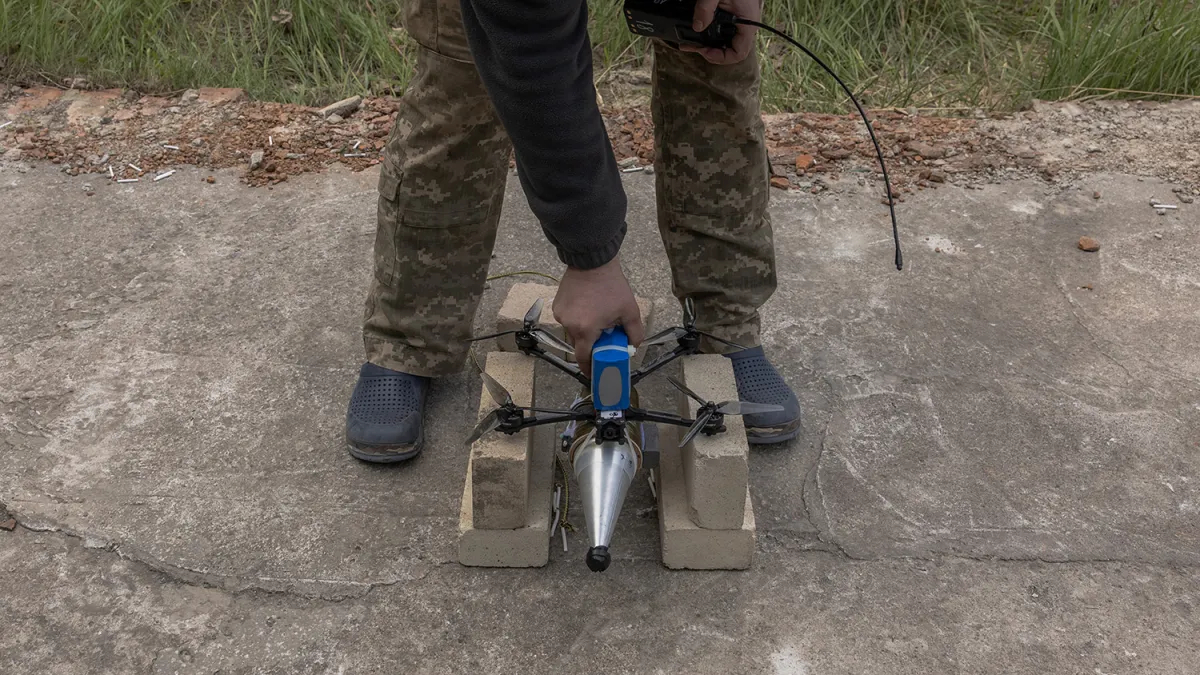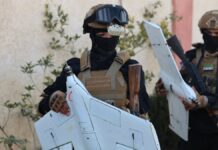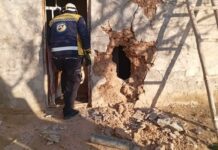
In an escalating conflict in Syria’s northwest, the Fath al-Mubeen Operations Room (FMOR), a coalition of military factions, has stepped up its efforts to counter relentless attacks by Russian-backed Assad regime forces. FMOR recently targeted a crew of operators launching explosive-laden drones against civilians in Kafr Taal, west of Aleppo, marking a critical response to the growing threat of drone warfare in the region.
The Assad regime, with support from Russian forces, has increasingly relied on first-person view (FPV) suicide drones to terrorize civilians in liberated areas of northern Syria. These drones, capable of precise and devastating strikes, have been used to target residential areas, agricultural fields, and infrastructure, forcing residents to flee and disrupting daily life.
On Thursday, November 21, FMOR forces struck back, targeting a drone operator crew on the Orem al-Sughra front with what local sources described as “appropriate weapons.” The crew had been preparing to launch an attack on homes in Kafr Taal, a village already scarred by repeated bombardments. According to military sources, FMOR achieved a direct hit, neutralizing the threat and temporarily halting drone activity in the area.
The impact of drone warfare on civilian populations is devastating. The Syrian Civil Defense, also known as the White Helmets, has documented hundreds of attacks using FPV suicide drones this year. These drones have killed 34 civilians, including women and children, and injured 88 others in Aleppo and Idlib. Additionally, more than 256 separate drone assaults have displaced families, disrupted agricultural and educational activities, and undermined livelihoods, particularly during the crucial olive harvest season.
FMOR’s response highlights the critical role local military groups play in protecting northern Syria’s liberated areas. By targeting drone operators and their launch sites, FMOR has disrupted a key tool in the regime’s arsenal. This tactical success also serves as a message to Assad’s forces that attacks on civilians will not go unanswered.
Drone warfare, while effective in displacing populations and spreading fear, is not invincible. Syrian Civil Defense reports indicate that 133 drones have been shot down in the region this year, though the toll on civilians remains heavy. FMOR’s proactive countermeasures are essential in minimizing the human cost and preventing further displacement.
The use of suicide drones in northwest Syria exemplifies the evolving nature of modern warfare, where unmanned aerial systems are increasingly deployed to target vulnerable populations. Beyond the immediate physical destruction, these attacks destabilize communities, destroy livelihoods, and create waves of internally displaced people.
International organizations and local response teams have repeatedly called for accountability, but thus far, the Assad regime and its backers continue their drone campaigns unchecked. The Syrian Response Coordinators (SRC) team has warned of the dire humanitarian consequences, urging global action to prevent further atrocities.
As the conflict in northern Syria intensifies, FMOR’s efforts to counter drone warfare and protect civilians remain crucial. However, the ongoing attacks highlight the broader challenges of defending liberated areas against a regime determined to regain control through fear and violence.








